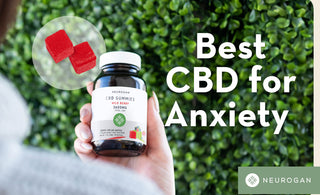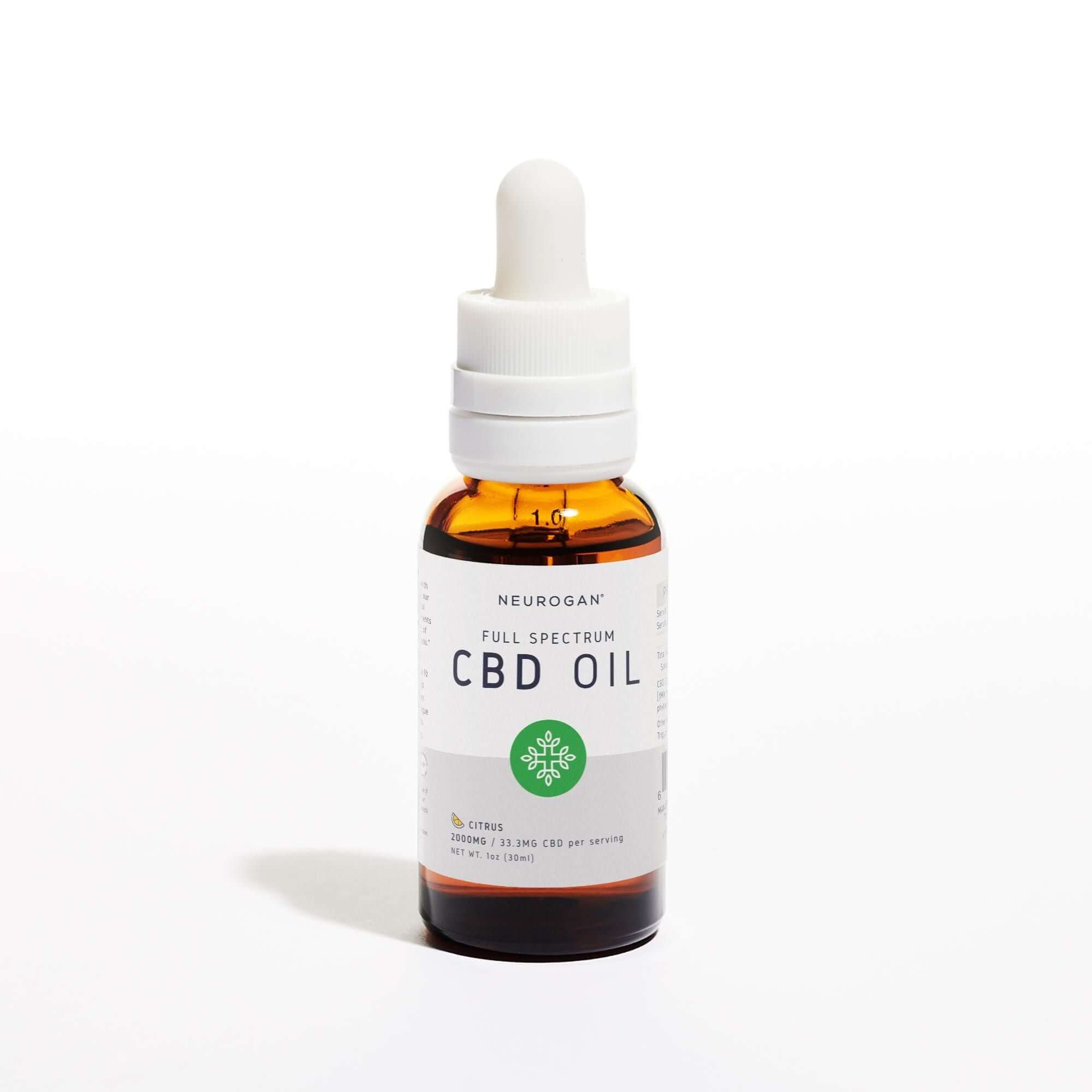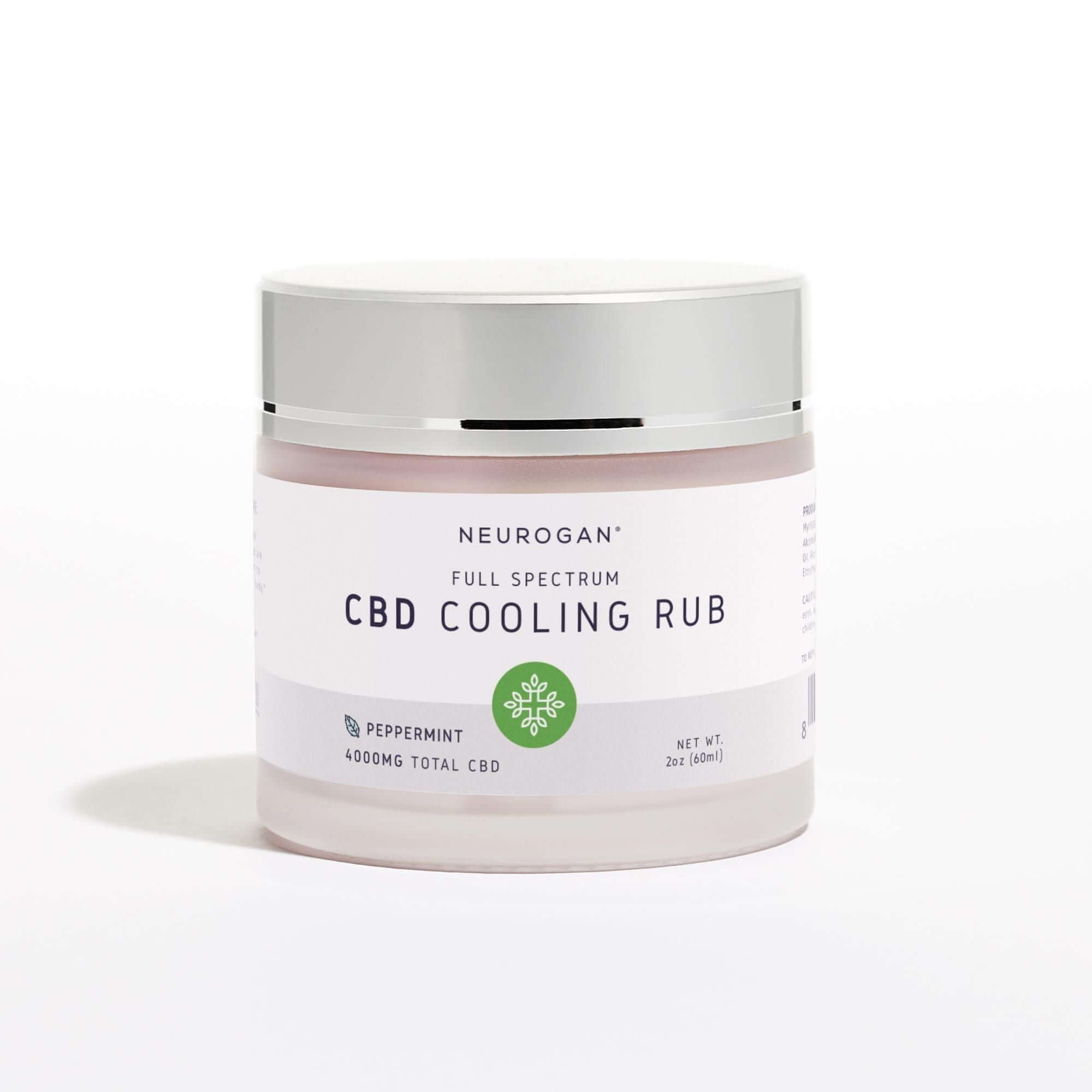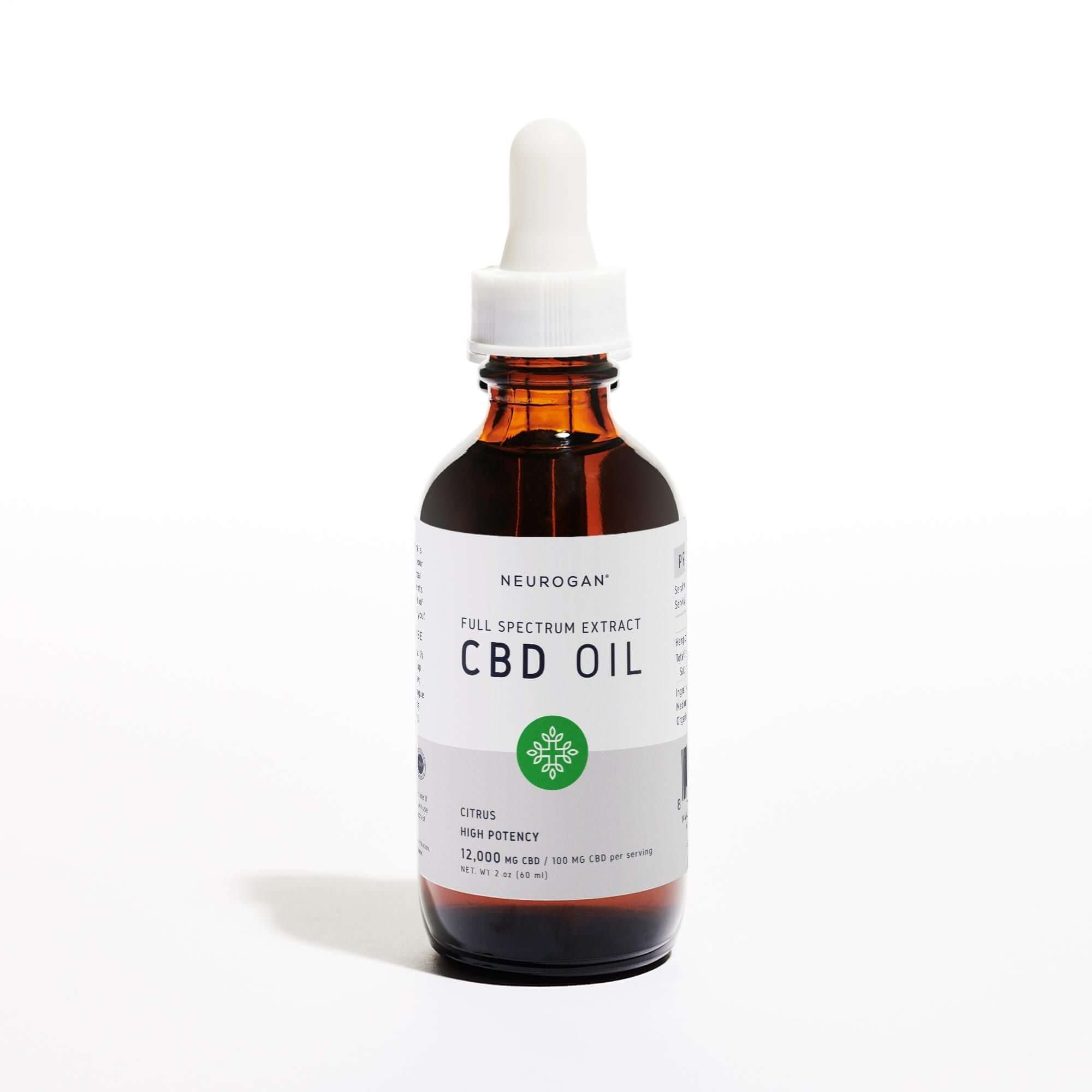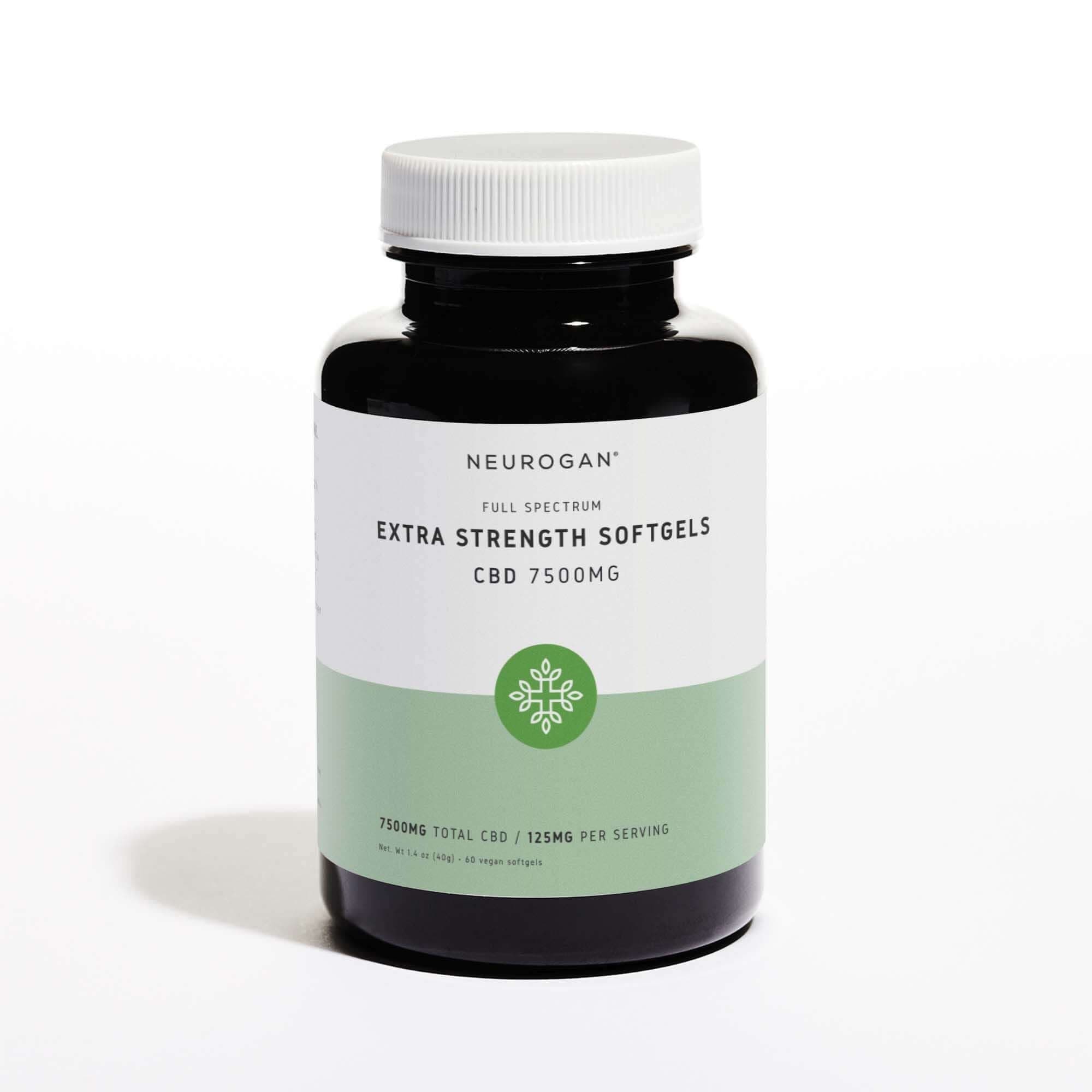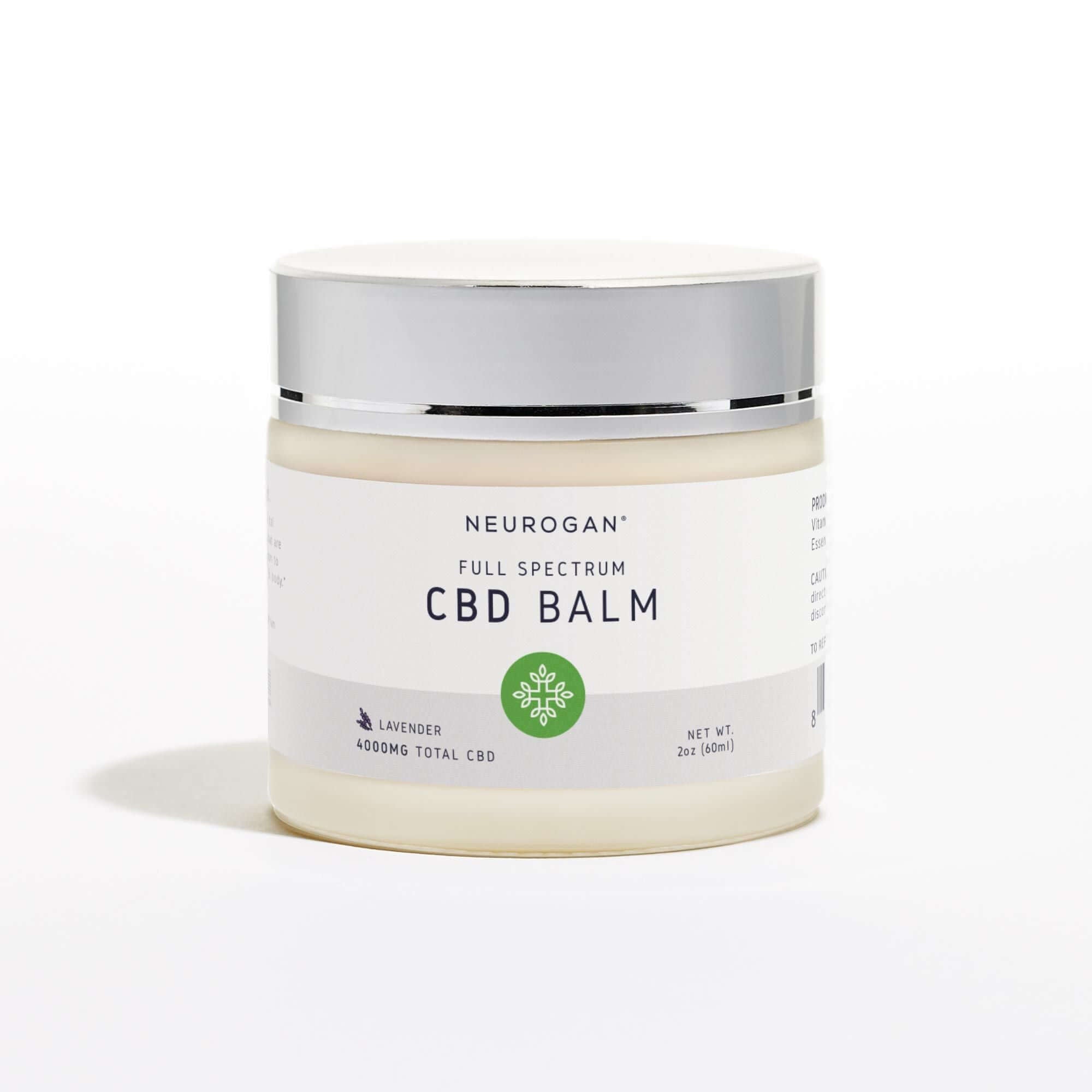In a world where stress and anxiety seem to be at an all-time high, finding natural remedies is more important than ever. And for many people, taking CBD gummies for anxiety offers a convenient, discreet, and delicious answer.
So, whether you're battling anxiety, curious about CBD gummies, or simply a wellness enthusiast, stay with us.
In this blog post, we'll compare the best CBD gummies for anxiety in 2024, dive into how CBD gummies work, and discuss natural ways to manage stress.
Key Takeaways: CBD Gummies For Anxiety
- The quality and potency of CBD gummies can significantly influence their effectiveness. Brands such as Neurogan, FAB, Joy Organics, Charlotte's Web, and cbdMD have been highlighted due to their high-quality ingredients, transparency, and positive customer reviews.
- The type of CBD used in gummies (full-spectrum, broad-spectrum, or isolate) can provide different benefits. Full- and broad-spectrum CBD products often contain other beneficial cannabinoids and terpenes, which can create an "entourage effect" to enhance the potential benefits of CBD.
- While more research is needed, preliminary studies and anecdotal evidence suggest that CBD could potentially help to manage symptoms of anxiety.
- Consider customer reviews and testimonials and consult a healthcare professional before taking any CBD product if you have an underlying health condition.
Top CBD Gummies for Anxiety Relief in 2024
- Neurogan Full Spectrum CBD Gummy Squares
- FAB CBD Chews Anytime Gummies
- Joy Organics CBD Gummies
- Charlotte's Web Calm CBD Gummies
- cbdMD CBD Calming Gummies
You might be wondering, "Can a gummy bear really influence our nervous system and promote relaxation?"
While researchers are still actively trying to unravel the full connection between CBD, the endocannabinoid system (ECS), and anxiety, there is considerable evidence that points to CBD's potential efficacy in supporting healthy stress levels.
But there are plenty of people out there who use CBD gummies for stress, and we've rounded up the best products across the online CBD market to help you navigate this space.
| Brand | Price | Gummies Count | Total CBD Content | MG of CBD per Gummy | Price per MG of CBD | Flavor |
|---|---|---|---|---|---|---|
| Neurogan CBD Gummy Squares | $75 | 30 | 3600mg CBD | 120mg CBD | $0.02/mg | Wild Berry, Fresh Watermelon, Watermelon & Wildberry Mix |
| FAB CBD Chews Anytime Gummies | $59.95 | 30 | 750mg CBD | 25mg CBD | $0.08/mg |
Fruity flavor (Grape and Carrot) |
| Joy Organics CBD Gummies | $49.95 | 30 | 750mg CBD | 25mg CBD | $0.06/mg | Strawberry Lemonade |
| Charlotte's Web Calm CBD Gummies | $44.99 | 60 | 600mg CBD | 10mg CBD | $0.075/mg | Lemon Lime |
| cbdMD CBD Calming Gummies | $69.99 | 60 | 750mg CBD | 12.5mg CBD | $0.09/mg | Raspberry |
Neurogan Full Spectrum CBD Gummy Squares
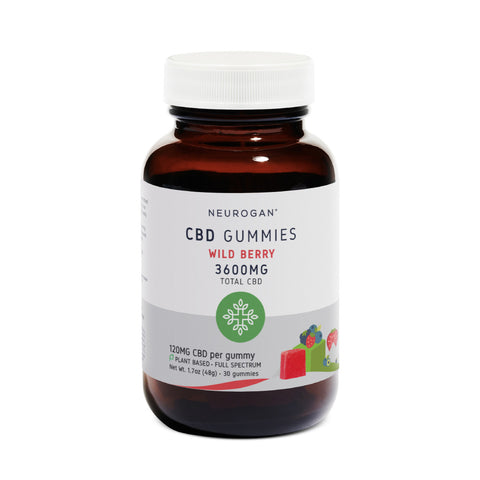
The Neurogan CBD Gummy Squares are a favorite among people exploring ways to maintain a sense of calm and manage their daily stress with an affordable, high-quality CBD gummy.
Each gummy bear contains 40 mg full-spectrum CBD from sun-grown hemp flowers, aiming to deliver a well-rounded experience. This is the most potent full-spectrum CBD gummy on this list at an incredible value.
At Neurogan, we place a considerable emphasis on CBD potency in our products, asserting our commitment to delivering high-quality, potent CBD gummies with THC for anxiety to the market, although, the THC is below 0.3%.
Neurogan stands firmly behind the power of full-spectrum CBD. We believe the synergistic interaction of all the natural plant compounds — including cannabinoids, terpenes, and flavonoids—creates an enhanced effect, often referred to as the "entourage effect."
These gummies are made with non-GMO, and vegan-friendly ingredients, catering to those who are mindful of what they consume. Many consumers have expressed their appreciation for these gummies, often commenting on their pleasing flavor and potential to contribute to their wellness routine.
Price: $75
Gummies Count: 30
Total CBD Content: 3600 mg
MG of CBD Per Gummy: 120 mg
Flavoring: Wild Berry, Fresh Watermelon, Watermelon & Wildberry Mix
Discounts: Subscribe & save 25% per bottle
FAB CBD Chews Anytime Gummies

FAB is renowned for its high-quality CBD products, and its CBD Chews are no exception.
These gummies are made with CBD isolate, meaning they contain only CBD, with no other cannabinoids, terpenes, or flavonoids from the hemp plant. This makes them an ideal choice for individuals who prefer to avoid THC completely, or those who may have sensitivities to other components of the cannabis plant.
However, the isolate CBD formula implies that users might not benefit from the "entourage effect."
As a result, some users might require a higher potency or larger dose of these isolate gummies to achieve effects similar to those offered by full-spectrum or broad-spectrum CBD formulations.
These chews have gained a reputation for their potential to contribute to a sense of calm and manage daily stress, are THC-free, non-GMO, and fruit-flavored.
One potential downside of FAB CBD Chews is that they may be more expensive than some of the other options on our list. Despite the cost, many users seem to believe that the potential benefits of these CBD chews are well worth it.
Price: $59.95
Gummies Count: 30
Total CBD Content: 750 mg
MG of CBD Per Gummy: 25 mg
Flavoring: Fruity flavor (Grape and Carrot)
Discounts: Subscribe & save 20% per bottle
Joy Organics CBD Gummies
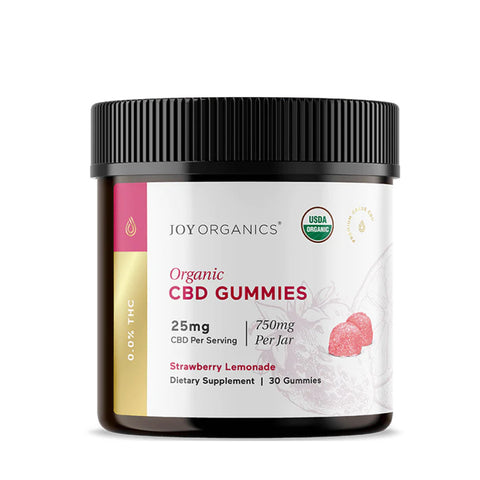
Joy Organics CBD Gummies are known for their premium, THC-free, broad-spectrum CBD formula.
The key advantage of broad-spectrum CBD lies in the inclusion of various cannabinoids, terpenes, and flavonoids from the cannabis plant apart from CBD. This ensemble of compounds can potentially work together in the entourage effect to enhance the overall beneficial effects of CBD.
Yet, with Joy Organics' careful extraction process, THC—the psychoactive compound in cannabis—is completely removed. This results in a product that allows consumers to experience the potential holistic benefits of the cannabis plant without any psychoactive effects.
With clean, plant-based ingredients and a delightful strawberry lemonade flavor, these gummies offer a delicious way to manage anxiety, delivering 25 mg of CBD per chew, which is a moderate dose.
Price: $49.95
Gummies Count: 25
Total CBD Content: 750 mg
MG of CBD Per Gummy: 25 mg
Flavoring: Strawberry Lemonade
Discounts: Subscribe & save 20% per bottle
Charlotte's Web Calm CBD Gummies
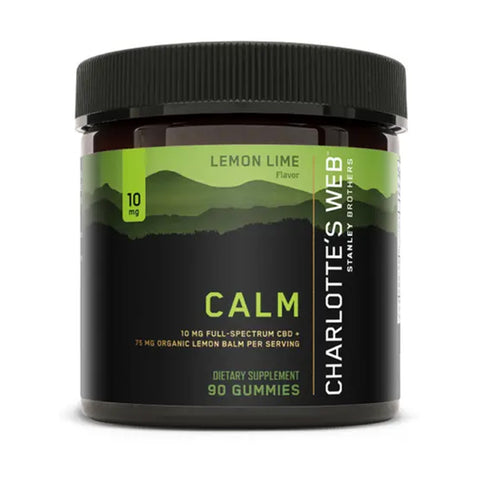
Charlotte's Web Calm CBD Gummies combine the power of CBD with other natural ingredients like lemon balm to promote a sense of calm.
Each gummy contains 10 mg of full-spectrum CBD, which may be considered a lower dose compared to some other brands. This smaller dose can be a great starting point for those new to CBD, or for those who prefer to take smaller amounts throughout the day. It gives users the flexibility to manage their intake and adjust the dose according to their personal needs and responses.
One of the standout ingredients in these gummies is lemon balm, a plant that has been used for centuries in traditional medicine due to its calming effects. Studies suggest that lemon balm may help to reduce stress and improve mood, potentially making it an excellent companion to CBD in these gummies [1].
Many users have appreciated their calming properties, with some noting a positive impact on their sleep quality, which is often disrupted due to stress and anxiety.
On the downside, with a total of 600 mg of CBD per bottle, Charlotte's Web Calm CBD Gummies are on the pricier side when compared to some other options on the market.
Price: $44.99
Gummies Count: 60
Total CBD Content: 600 mg
MG of CBD Per Gummy: 10 mg
Flavoring: Lemon Lime
Discounts: Subscribe & save 20% per bottle
cbdMD CBD Calming Gummies
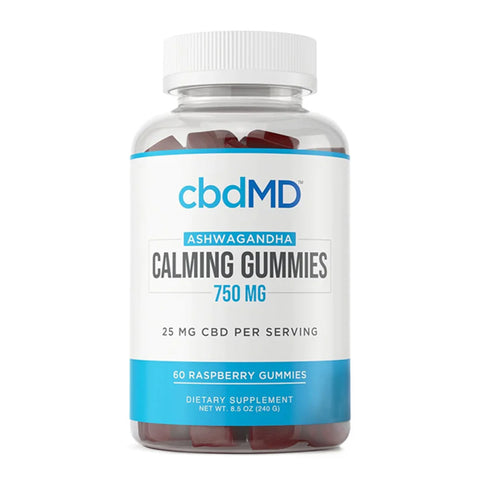
cbdMD CBD Gummies are a beloved choice for many seeking a holistic approach to maintaining calm and managing stress. These gummies feature a proprietary broad-spectrum CBD formula, meaning they contain an array of cannabinoid distillates from the hemp plant, excluding THC.
What sets cbdMD's gummies apart is the incorporation of additional stress-supporting compounds, creating a comprehensive formula aimed at promoting overall wellness. Included are ashwagandha extract, l-theanine, lemon balm, valerian root, and GABA—each offering unique potential benefits.
Ashwagandha, an ancient medicinal herb, is often used for stress relief. L-theanine, an amino acid found primarily in tea leaves, is noted for its potential to promote relaxation without causing drowsiness.
Lemon balm has traditionally been used to improve mood and cognitive function. Valerian root is often utilized as a natural sleep aid, and GABA, a type of amino acid, plays a crucial role in calming the nervous system. Together, these ingredients synergize with CBD to create a powerful blend that aims to support a relaxed state of mind.
Each gummy offers a dose of 12.5 mg of CBD, with a serving size of two gummies.
This mid-range potency gives users the flexibility to adjust their CBD intake according to their personal needs and preferences. The ability to easily scale doses is particularly valuable in managing one's wellness journey.
Price: $69.99
Gummies Count: 60
Total CBD Content: 750 mg
MG of CBD Per Gummy: 12.5 mg
Flavoring: Raspberry
Discounts: Subscribe & save 25% per bottle
Best CBD Gummies for Anxiety without THC
Neurogan THC-Free CBD Gummies
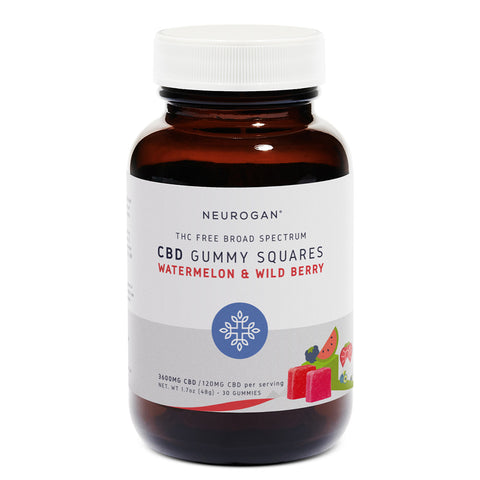
Neurogan's THC-Free CBD Gummies are notable for their high potency effect on managing anxiety, with each gummy delivering 120mg of CBD. The cost-effectiveness is enhanced by a low price per mg of CBD, and additional savings are available through subscription discounts. The no thc CBD gummies for anxiety come in flavors of Watermelon & Wild Berry, combining quality and value in a 30-count package. This makes them particularly suitable for those seeking a more robust support for anxiety management and overall wellness, allowing for a potent dose in a single serving.
Price: $55
Gummies Count: 30
Total CBD Content: 3600 mg
MG of CBD Per Gummy: 120mg
Flavoring: Watermelon & Wild Berry
Discounts: Subscribe & save 25% per bottle
Charlottes THC-Free CBD Gummies

Charlotte's Web THC-Free CBD Gummies, with their blend of cannabinoids and beneficial plant compounds, could be a suitable option for those seeking natural support for anxiety management. The absence of THC and the inclusion of natural ingredients like fruit and vegetable juices for flavor make these gummies an appealing choice for daily wellness routines, potentially aiding in maintaining calm and reducing stress.
Price: $45
Gummies Count: 60
Total CBD Content: 900 mg
MG of CBD Per Gummy: 15mg
Flavoring: Mango Peach
Discounts: Subscribe & save 20% per bottle
Cons:
Low CBD Content - May end up taking more than 1 gummy for those desiring a higher dosage.
RRMeds THC-Free CBD Gummies
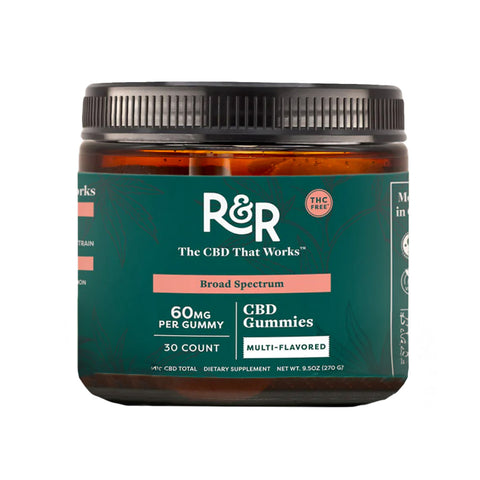
R&R Medicinals' THC-Free CBD Gummies are designed to support those seeking relief without THC's psychoactive effects. Their broad-spectrum formulation includes CBD and minor cannabinoids, which may work together to help manage anxiety by leveraging the entourage effect. This could provide a calming influence, making them suitable for individuals looking to alleviate anxiety symptoms.
Price: $55 | $80
Gummies Count: 30
Total CBD Content: 900 mg | 1800mg
MG of CBD Per Gummy: 30mg | 60mg
Flavoring: Apple, Peach & Strawberry Mix
Discounts: Subscribe & save 20% per bottle
Cons:
Sugar Coated - May not be the perfect gummies for those who are avoiding sugar.
The Science Behind CBD and Anxiety:

CBD is believed to interact with the body's endocannabinoid system (ECS), a complex cell-signaling system responsible for maintaining homeostasis, or balance, in the body. The ECS influences a variety of functions, including mood, appetite, sleep, immune response, and pain sensation.
CBD's exact interaction with the ECS isn't fully understood yet, but it's believed that CBD does not bind directly to the main ECS receptors, CB1 and CB2, like THC does.
Instead, CBD may work by preventing endocannabinoids from being broken down, enhancing their effects. It might also interact with non-endocannabinoid signaling systems, and it could even bind to a number of non-cannabinoid receptors to support a balanced mood [2].
CBD's interaction with the ECS can help promote better mental health and relaxation, which in turn can help reduce anxiety. By interacting with the ECS, CBD may provide relief from inflammation, pain, and anxiety, making it a promising option for those looking to manage their anxiety through alternative methods.
Full-spectrum CBD gummies are widely preferred for managing stress due to their comprehensive nature and the potential synergistic benefits they offer. Unlike CBD isolate or broad-spectrum CBD, full-spectrum CBD contains all the naturally occurring compounds in the cannabis plant, including cannabinoids, terpenes, flavonoids, and even trace amounts of THC (usually less than 0.3%).
When you ingest full-spectrum CBD gummies, you're essentially providing your endocannabinoid system (ECS) with a full toolkit to support balance and wellness.
Supporting Studies and Evidence
Truth be told, the science of CBD and research into its effects on anxiety is still ongoing, but some studies suggest it may be beneficial.
- A study published in The Journal Neurotherapeutics in 2015 reviewed previous research on CBD and various anxiety disorders, including general anxiety disorder (GAD), panic disorder (PD), post-traumatic stress disorder (PTSD), social anxiety disorder (SAD), and obsessive-compulsive disorder (OCD). The study found evidence that CBD was effective in reducing symptoms associated with these disorders [3].
- A 2019 study published in the Brazilian Journal of Psychiatry tested the effects of CBD on people with social anxiety during a public speaking test. The study found that a 300-mg dose of CBD was the most effective at significantly reducing anxiety during the test [4].
As with any supplement, it's recommended to consult with a healthcare provider before starting a new regimen.
Criteria for Selecting the Best CBD Gummies For Anxiety
There aren't any FDA-approved CBD brands offering CBD gummies for anxiety. When looking for the best CBD gummies for anxiety relief, consider these factors that can impact the quality and effectiveness of the product.
Quality and Source of Hemp
The quality and source of hemp used in CBD gummies plays a critical role in determining the overall quality of the product. High-quality CBD gummies are sourced from organic hemp plants cultivated in the United States or Europe, ensuring that the plants are grown without the use of harmful pesticides and other contaminants. When choosing CBD gummies, look for brands that contain organic ingredients and prioritize the safety and quality of their products.
In addition to the quality of the hemp, it's essential to consider the extraction process used to obtain the CBD. By choosing CBD gummies made from high-quality hemp and produced using safe extraction methods, you can ensure that you are consuming a product that is both effective and safe.
Third-Party Lab Testing and Transparency
Reputable brands will have their products tested by independent labs to verify the safety, potency, and purity of their products. This testing ensures that the CBD gummies contain the amount of CBD stated on the label and are free from harmful substances such as heavy metals, pesticides, and residual solvents.
Transparency is also key, as it allows you to make informed decisions about the products you consume.
Shop with brands that provide easy access to the CBD product lab results, either on their website or by request. Don't skip this step, as it helps to ensure you're choosing a product that is safe and effective for anxiety relief.
Customer Reviews and Testimonials
Customer reviews and testimonials can be valuable resources when determining the best CBD gummies for anxiety relief. These insights can provide a firsthand account of the effectiveness of a product, as well as any potential drawbacks or side effects.
By consulting customer reviews and testimonials, you can make an informed decision about which CBD gummies may be the most beneficial for your anxiety.
How CBD Gummies are Used for Anxiety and Stress
With so many options available, choosing the right CBD gummies for your anxiety can be overwhelming. However, finding natural remedies that work for you can be highly beneficial.
One effective natural remedy is CBD gummies. They offer a convenient, discreet, and tasty way to manage stress and anxiety. Interestingly, some people have found that CBD gummies not only help with anxiety but also provide relief from tinnitus, highlighting the interconnected nature of some conditions and the versatility of CBD products in addressing various wellness needs.
Here's some guidance on how to choose the right CBD gummies for your needs by determining the appropriate dosage, considering your lifestyle and preferences, and consulting a healthcare professional.
Determining the Appropriate Dosage
Determining the appropriate dosage of CBD gummies for anxiety relief is an essential step in finding the right product for your needs. The rule of thumb is to start with a low dose (5–10 mg) to evaluate your tolerance level and adjust the dosage as your body acclimates to CBD.
This approach allows you to find the optimal dosage for your needs without risking potential side effects.
Keep in mind that the dosage for CBD gummies may vary depending on factors such as body weight, metabolism, and the severity of your anxiety.
Considering Your Lifestyle and Preferences
Personal lifestyle and preferences include factors such as the type of CBD (full spectrum, broad spectrum, or CBD isolate), the potency of the CBD, flavor preferences, and any dietary restrictions you may have.
By taking these factors into account, you can choose a CBD gummy that aligns with your needs and preferences.
For example, if you prefer a vegan product, you may opt for a brand like Neurogan that offers vegan CBD gummies.
Or, if you prefer a product with additional ingredients to enhance its benefits, you may choose a gummy like cbdMD's Calming Gummies, which incorporate ashwagandha, GABA, and other plant extracts for stress.
CBD drops for anxiety relief can also be a viable option to explore alongside CBD gummies and other CBD products.
Consulting a Healthcare Professional
When considering CBD as a supplement, it's always advisable to have a conversation with a healthcare professional first.
This is particularly important if you're currently taking medications or supplements, as CBD may interact with certain medications, potentially leading to adverse effects.
A healthcare professional can help you determine whether CBD gummies are safe for you and recommend the most appropriate dosage based on your needs and medical history.
In addition to guidance on the safety and dosage of CBD gummies, a professional can also help you explore alternative methods for managing anxiety, such as mindfulness practices, physical activity and exercise, and social support and therapy.
What CBD Gummies Feel Like
CBD gummies generally offer a pleasant taste, often infused with a range of fruity or sweet flavors. This is a contrast to the more earthy or bitter flavor often associated with CBD oils or tinctures, making gummies a popular choice for CBD consumption.
While the effects can differ from person to person, many users report a sense of relaxation or calm after taking CBD gummies, which can potentially help in managing feelings of anxiety or stress.
CBD is non-psychoactive, meaning that it should not produce the "high" often associated with cannabis. However, full-spectrum CBD products can contain up to 0.3% THC, which, in most cases, should not be enough to produce psychoactive effects.
To offer a bit of guidance on expectations, CBD gummies aren't usually immediately effective. As they need to be digested, the onset of effects can take anywhere from 30 minutes to two hours. The effects also tend to be longer-lasting compared to other consumption methods, such as smoking or vaping.
Potential Side Effects
While CBD is generally considered safe, it's important to be aware of the potential side effects associated with its use.
The most common side effects of CBD include drowsiness, dry mouth, and lightheadedness. These side effects are typically mild and can often be managed by using CBD from a reputable CBD company, adjusting the dosage, or consuming CBD with food.

The Takeaway: Hemp-Derived CBD Gummies For Anxiety
For some, CBD gummies offer a promising option for combating feelings of anxiousness and stress. By exploring the best CBD gummies in 2024, understanding the science behind CBD and anxiety, and considering alternative methods for managing anxiety, you may be able to develop a comprehensive approach to anxiety management that supports your overall mental health and well-being.
Whether you choose to try CBD gummies, incorporate mindfulness practices, engage in physical activity and exercise, or seek social support and therapy, remember that finding the right combination of strategies is key to effectively managing anxiety. With persistence and patience, you can overcome life's challenges and build a strong foundation for lasting mental health.
Frequently Asked Questions About CBD Gummies For Anxiety
How much do CBD gummies help with anxiety?
The effectiveness of CBD gummies for anxiety varies among individuals. Factors such as body chemistry, the severity of symptoms, and the type and quality of CBD used all play a role. Some people may find significant relief with CBD gummies, while others may experience milder effects.
Finding the right CBD product and dosage can be a trial-and-error process, as everyone can react differently to CBD. Take your time researching the best CBD products, experiment with your doses, monitor your mood, and communicate feedback with a wellness professional if you need to.
What side effects do CBD gummies have?
CBD is generally considered safe, but potential side effects could include dry mouth, drowsiness, fatigue, and digestive issues. These side effects are usually mild and can often be managed by reducing the dosage.
What is the best mg CBD for anxiety symptoms?
There is no one-size-fits-all dosage of CBD for anxiety. Dosage can depend on factors like your body weight, the severity of your symptoms, and how your body metabolizes CBD. Starting with a low dose (like 10-20mg per day) and gradually increasing it until you find what works best for you is generally a good approach.
How long does it take to feel the effects of CBD gummies?
CBD gummies starts working anywhere from 30 minutes to 2 hours since it need to be digested. This can vary depending on your metabolism and whether you've eaten other foods at the same time.
How often is it OK to take CBD gummies?
Some people may take CBD gummies daily, while others may use them occasionally. The frequency of use depends on individual needs and the specific product's dosage. Most people will find the best effects from their CBD products with regular use to support overall endocannabinoid system function.
Do CBD gummies affect your brain?
CBD is believed to interact with the endocannabinoid system in the body, which has a role in regulating various functions, including mood and stress response. Unlike THC, the compound in cannabis that causes a "high," CBD is non-psychoactive and should not have a significant altering effect on brain function. However, some research suggests that it might have an impact on serotonin levels, which could influence mood, stress levels, and perception of pain [5].
Resources:
- Scholey, A., Gibbs, A., Neale, C., Perry, N., Ossoukhova, A., Bilog, V., ... & Buchwald-Werner, S. (2014). Anti-stress effects of lemon balm-containing foods. Nutrients, 6(11), 4805-4821.
- Ashton, C. H., & Moore, P. B. (2011). Endocannabinoid system dysfunction in mood and related disorders. Acta Psychiatrica Scandinavica, 124(4), 250-261.
- Blessing, E. M., Steenkamp, M. M., Manzanares, J., & Marmar, C. R. (2015). Cannabidiol as a potential treatment for anxiety disorders. Neurotherapeutics, 12(4), 825-836.
- Linares, I. M., Zuardi, A. W., Pereira, L. C., Queiroz, R. H., Mechoulam, R., Guimarães, F. S., & Crippa, J. A. (2018). Cannabidiol presents an inverted U-shaped dose-response curve in a simulated public speaking test. Brazilian Journal of Psychiatry, 41, 9-14.
- De Gregorio, D., McLaughlin, R. J., Posa, L., Ochoa-Sanchez, R., Enns, J., Lopez-Canul, M., ... & Gobbi, G. (2019). Cannabidiol modulates serotonergic transmission and reverses both allodynia and anxiety-like behavior in a model of neuropathic pain. Pain, 160(1), 136.

